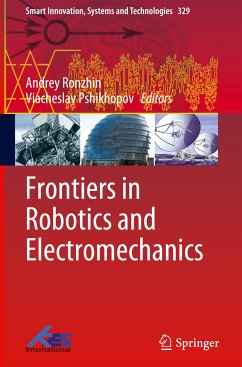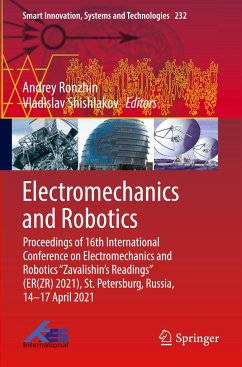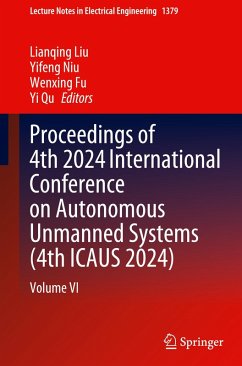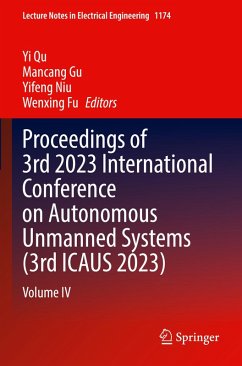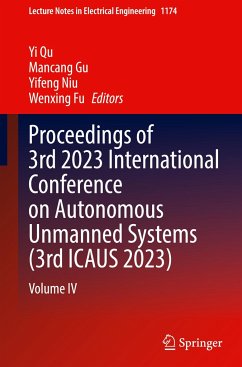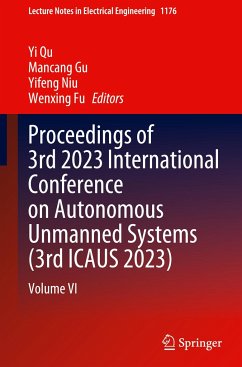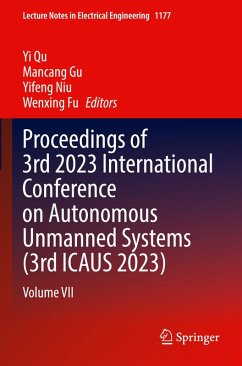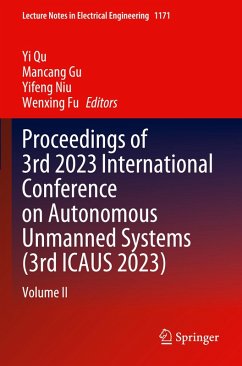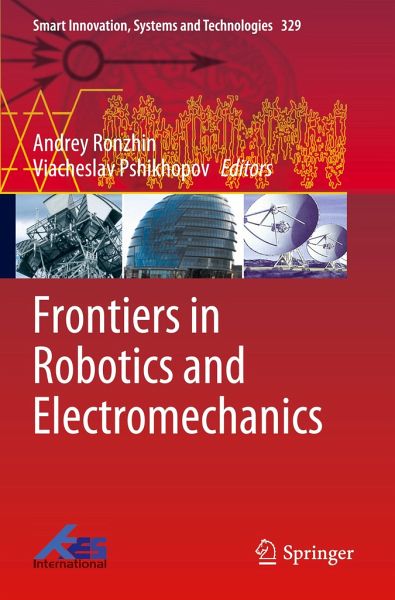
Frontiers in Robotics and Electromechanics
Versandkostenfrei!
Versandfertig in 6-10 Tagen
129,99 €
inkl. MwSt.

PAYBACK Punkte
65 °P sammeln!
This book introduces intellectual control systems and electromechanics of heterogeneous robots. The book uncovers fundamental principles of robot control and recent developments in software and hardware of robots. The book presents solutions and discusses problems of single robotic devices as well as heterogeneous robotic teams while performing technological tasks that require informational, physical or energetic interaction with human users, environment and other robots. The book considers model-algorithmic and software-hardware control of ground, water and underwater robots, unmanned aerial ...
This book introduces intellectual control systems and electromechanics of heterogeneous robots. The book uncovers fundamental principles of robot control and recent developments in software and hardware of robots. The book presents solutions and discusses problems of single robotic devices as well as heterogeneous robotic teams while performing technological tasks that require informational, physical or energetic interaction with human users, environment and other robots. The book considers model-algorithmic and software-hardware control of ground, water and underwater robots, unmanned aerial vehicles, as well as their embedded and attached sub-systems, including manipulators, end-effectors, sensors, actuators, etc. The book will be useful for researchers of interdisciplinary issues related to robotics, electromechanics and artificial intelligence. The book is recommended for graduate students with a major/minor in the areas of robotics and mechatronics, management in technical systems, Internet of Things, artificial intelligence, electrical engineering, mechanical engineering and computer science.



